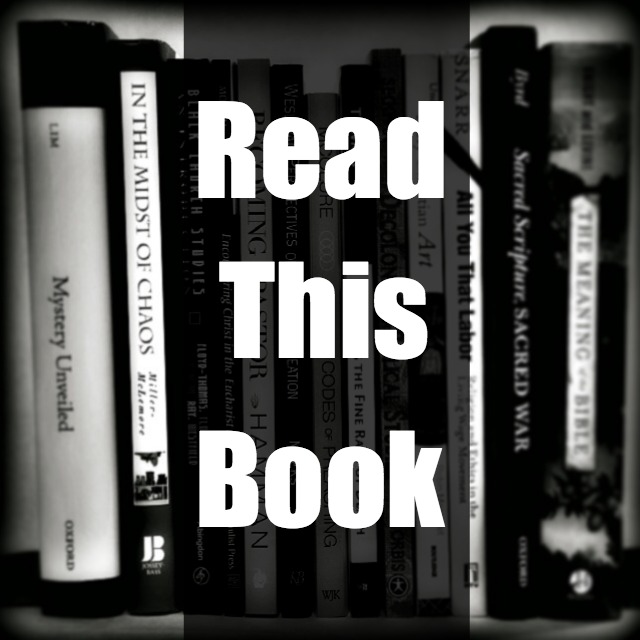 Each month, we ask a member of the Vanderbilt Divinity School faculty to recommend a book they are currently reading. Our September recommendation is offered by Paul Lim, Associate Professor of the History of Christianity, Associate Professor of Religious Studies, Affiliate Professor, Department of History.
Each month, we ask a member of the Vanderbilt Divinity School faculty to recommend a book they are currently reading. Our September recommendation is offered by Paul Lim, Associate Professor of the History of Christianity, Associate Professor of Religious Studies, Affiliate Professor, Department of History.
This summer past was an immensely packed season of travel—teaching and research—for me, with destinations to England, the Netherlands, Belgium, India, and Korea for global sites, and Philadelphia, New York, and Boston within the States. Two books were in my backpack most of the summer, and it is these that I want to recommend to you the Reader! Siddarth Kara’s Sex Trafficking: Inside the Business of Modern Slavery (Columbia, 2009) and Amartya Sen’s Development as Freedom (Knopf, 1999).
First of all, why would a scholar of Reformation- and post-Reformation England with particular focus on religious and intellectual history be reading books with words such as “sex trafficking” and “development” economics on the title? Well, that is because there are subjects that I care deeply about, teach, and am writing on in addition to controversies surrounding the doctrine of the Trinity in early modern Europe!

I have been teaching a course called “History of Theodicy in Christian Traditions” here at VDS and in my last institution, for I am convinced that for Theology to be anywhere near being the “Queen of the Sciences,” it has to grapple with Lived Reality, the quotidian interstices of life where the theological rubber meets the meandering roads. It is taught historically and genealogically. As both Nietzsche and a well-known contemporary geneticist have declared, all our intellectual endeavors (must) have genealogical orientation, offering a narratival/historical arc to where we are and how we have gotten here.
The two new books that I will be drawing heavily from for this semester’s Theodicy Seminar are the aforementioned books by Kara and Sen. Now then, firstly about Sen’s Development as Freedom, for it might require a bit more of justification, followed by Kara’s Sex Trafficking.
I drank from Sen’s well deeply and that—hopefully—to good effect. For this erstwhile professor of economics at LSE, Calcutta, Oxford, Cambridge, and Harvard, economic development of whatever persuasion and perspective ought to have “freedom” as its ultimate telos. As a Nobel Prize winner in Economics, Professor Sen’s writings have profoundly shaped and fundamentally altered the way one approaches development economics. Sen anchors his economic theory in historical analysis, ranging from the American Civil War to Marx’s Das Kapital, and his conclusions are as interdisciplinary and yet astoundingly incisive and lucid. His core inquiry can be summarized in this way: “If there are conflicts and if we could only choose one option, would we choose the method that optimizes ‘the growth of output per head’ or one that commits itself to and focuses on “expanding human freedom’”? [pp. 290-91] His book defies facile dichotomizations; both fiscally conservative theorists as well as those who are on the left edge of the economic policy spectrum will find Sen’s Development as Freedom stirring and challenging. Both the Occupy Wall St., proponents as well as the more ethically oriented (I believe there are some) hedge fund managers will have to grapple with this.
So you ask: what’s the payoff for a VDS student, alumna, alumnus, staff, and even faculty? My simple (but I am hopeful not simplistic) response is this: economics is an all-pervasive reality, whether one thinks about paying the tuition bill, saving for retirement, buying putatively ethically sourced coffee, or deciding on what car to buy and drive (WWJD? What Would Jesus Drive?), you get the point. Less facetiously, as we are swimming in the sea of a hyper-globalizing world, one has to think critically and charitably (dare I even say confessionally, whatever your (ir)religious confessions might be?) about the issue of freedom and economic development. Sen is ultimately concerned about using economics as a tool, not telos, of human flourishing and to that end, I highly recommend Development as Freedom.
The other book I am including on the Reading List for the Theodicy Seminar is Siddarth Kara’s Sex Trafficking: Inside the Business of Modern Slavery. I was in Kolkata and Delhi, India this summer, researching for my next book on Global Christianity and Human Trafficking: interviewing freedom business owners, NGO heads and staff, human rights activists. And everyone was talking about this book! Kara directs the program on Human Trafficking and Modern Slavery at Harvard’s Kennedy School of Government, and his book is global in its scope and orientation, as he sought to understand the further twist in the way de-humanization occurs in this immorally lucrative trafficking of human beings for the purpose of procuring sexual pleasure, that at someone’s expense. I could not put the book down, so much so that after reading Kara’s account, I chose to use this instead of another more updated text (one that I had used last time) because of the narratival force. It’s not merely stats and geographical distribution of the business of sexual slavery, although it surely has that galore. After offering a compelling survey of Sex Trafficking, Kara takes the reader through India, Nepal, Italy, Western Europe, Moldova, and the former USSR, Albania, and the Balkans, Thailand, the US, thereby completing a world tour of the state of the art of human trafficking. What I found at least equally compelling was Chapter Eight, “A Framework for Abolition: Risk and Demand,” in which he throws down his gauntlet and tells us what we should be doing, both from the policy standpoint and from the moral-ethical activism standpoint. After arguing that a “business analysis of the sex trafficking industry would reveal its vulnerable points,” Kara declares that to “ensure that the business of sex trafficking and other forms of modern slavery are eradicated in the long term, the primary conditions that first gave rise to these crimes—poverty and the destructive asymmetries of economic globalization—must also be addressed.” [pp. 200-1]. Inasmuch as I loved this book, I found that something might be amiss. If we, as global agents of justice, mercy and love, end up addressing all the economic and systemic fissures that let the cisterns of water of life to leak out, would that be sufficient? Imagine a world with no poverty, no asymmetric economic distribution, would that equity be a sufficient condition to keep the wheel of human production and flourishing going? Here, I find myself an accidental Augustinian! Augustine came to a simultaneously painful and joyful (painful in that he came to realize that he was not the ultimate source of solution; joyful in that it was precisely in that realization he found freedom) realization that all our educational, aesthetic, and economic endeavors without rectifying the ethical compass would leave the human condition with some gap.
This recognition of a gap is where students and alums of VDS can engage with both Sen and Kara’s texts to great benefit and offer a robust critique while deeply appreciating their insights. Tolle lege indeed!